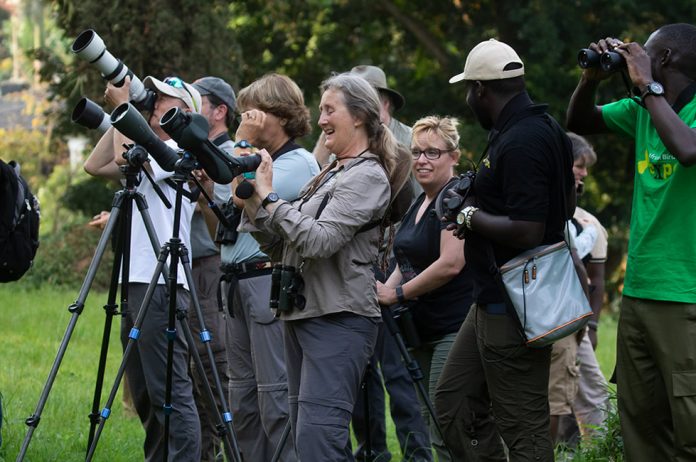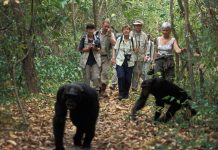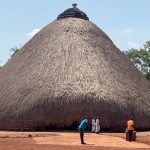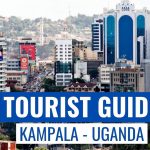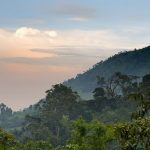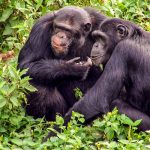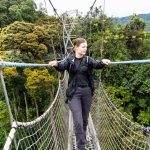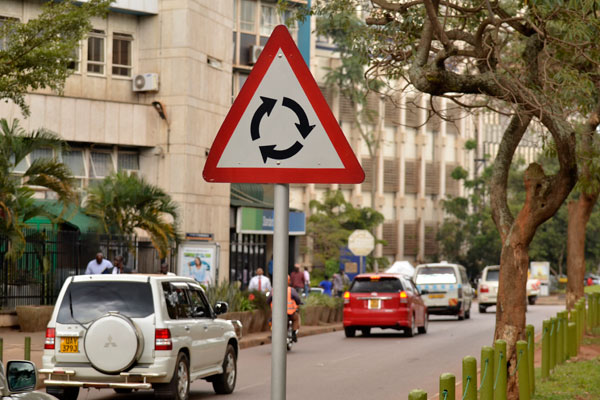Destination Uganda is a mind-blowing avi-tourism hub located in Eastern Africa. A plethora of approximately 50% of the continent’s bird count and 11% of the world’s bird species.
The birds are dotted in a wide range of habitats from forest, swamps and wetlands, savanna, to the waters and air.
The Pearl of Africa, as she is often labeled, is one destination every ardent birdwatcher needs to visit to update their checklist.
There is nothing quite rewarding as the thrill of seeing new bird species, or spotting some that you least expect to find in this part of the world, from the elusive prehistoric dinosaur lookalike, the Shoebill; blue swallow, short-winged nightjar, green breasted pitta; to the largest bird on earth, the common ostrich.
The best spots for a birding tour in Uganda
Some of the famous birdwatching sports in Uganda include, Murchison Falls National Park, Queen Elizabeth National Park, Lake Mburo National Park, Bwindi Impenetrable National Park, Mgahinga Gorilla National Park, Kibale Forest National Park, Semuliki National Park and Wildlife Reserve, Mt. Elgon National Park, Pian Upe Wildlife Reserve, Matheniko and Bokora Wildlife Reserves, Kidepo Valley National Park, Budongo and Mabira forests, Lutembe and Mabamba Ramsar sites; among others.
Birding can happen pretty much anywhere in Uganda.
From the moment you walk off the plane at Entebbe International Airport, your birding count begins.
While in Kampala, Uganda’s Capital City, you just can’t get bored since there are a number of rewarding birdwatching sites that surround the city and can also be even accessed by public transport means, a taxi or a Boda Boda (motorbike taxi). These include the forested Makerere University, Entebbe Botanical Gardens, Chakig Ecotourism Site, Mpanga Forest and Mabira Forest all of which can guarantee a checklist of over 20 different bird species in a single excursion.
Uganda’s Lutembe Wetland Ramsar Site located on the shores of Lake Victoria is one of such spots close to town for a quick one-day Uganda birding trip. The wetland is a special stopover for European migratory species like the White-winged Terns, Caspian terns, Grey-headed gulls and the Spotted flycatchers which travel from Europe escaping from winter and arrive here early October and stay until late March. The Ramsar site also houses some pretty rare species that include the Hottentot teals, Termnicks stint, water thickness among others.
Birds that will catch your eye during a birding safari in Uganda.
Some of the eye-catching bird species that can be found in Uganda include the Levilliant’s Cuckoo, Karamoja Apalis, Grey-crowned Crane, which is also the national bird and is on the Uganda flag.
You can also look forward to seeing the Abdm’s Stalk, Night Herons, Ituri Batis, Northern Carmine Bee-eaters, Martial Eagle, Giant kingfishers, Ostriches, Black-billed Turaco, Shelley’s Crimsonwing, Regal Sunbird, African Quail-Finch, Abyssinian Ground Hornbill, Pink-backed Pelican, Flamingoes, Archer’s Robin Chart, Green Breasted Pitta, Yellow-spotted Barbet,White-spotted Flufftail, Long-eared Owl, Nubian Woodpecker, the African finfoot, African Fish Eagle, Nahan’s Francolin, Brown twinspot, Dwarf Kingfishers; the list does on and on and on.
What to expect while on your Uganda Bird Watching safari
Birding in Uganda is mostly done in designated wildlife conservation areas that are located in almost all regions of the country categorized into National Parks, Wildlife Reserves, Ramsar Sites, Forests, and Sanctuaries.
These areas have a variety of wildlife ranging from mammals, reptiles, amphibians, vertebrates, invertebrates and rodents, insects, plants and people.
You can certainly expect to record over 500 species of birds over a period of only 2 weeks. But as you marvel at Uganda’s beautiful feathery population, you will quickly realize that this country is not only about staring at Shoebills and Turacos, but also a top big game safari destination.
Prepare to be wowed by the Mountain Gorillas in Bwindi Impenetrable National Park, track the chimpanzees in Kibale Forest National Park or hike the mountains of the moon while on your ornithology safari in Uganda.
Three key points as you plan for your birdwatching safari in Uganda.
1. Contact a professional Tour Operator.
While planning your safari to Uganda, please ensure to contact a professional, registered tour operator with a specialty in birdwatching safaris. The companies are listed on the Association of Uganda Tour Operators website. You The process of putting the package together is extremely flexible and the tour operator can help you tailor your itinerary as well as to offer professional advice on how, and when to travel to Uganda for your birdwatching safari.
Among other things, an experienced tour operator will help plan for you should you be interested in migratory species or rare species or information about recent sightings.
2. Ask for an experienced local guide
For a stress-free and enjoyable Uganda birding trip, you will want to contact a tour operator to find you or to recommend for you a good and experienced local birdwatching safari guide. This is crucial since such people have mastered the art, and they will know all the must-see birdwatching hotspots.
An experienced local guide also comes with a wealth of knowledge in the dynamics of the birding industry, since their specialty is largely in birdwatching. You can also contact the Uganda Safari Guides Association (USAGA) for recommendations.
A very good place to look for an excellent guide as well is, especially for a Uganda birding safari is the Destinations Birders Uganda, a group of enthusiastic, knowledgeable, skilled and professional safari guides based in Uganda with a great passion for ornithology as well as working hard to revolutionize bird watching in the country. You can visit the Uganda Birders Guide to keep up with their frequent adventures.
3. Get the Field Guide Book
Remember to purchase or rent the Birds of East Africa Field Guide to get conversant with some of the species in the country before you travel to this gorgeous country. The books have a detailed analysis of over 95% of the recorded bird species in Uganda and increase your scope of what to expect while birding in Uganda.
DID YOU KNOW that there is a smartphone application for this? You might also want to consider buying the app version of the book; that way you don’t necessarily have to carry the heavy book, haha! Here is a link to where you can buy the eGuide right now, or you can simply click on the image below
Bonus Tip: Birding Equipment
While binoculars can be found in Uganda and your birdwatching guide will definitely have a pair or two, it is most advisable to pack your own pair which you will be most comfortable with. Of course, there are other personal items that are recommended on almost all packing lists for a safari to Africa, but I will emphasize having a camera and note pad or anything which you can use to record the birds identified.
There’s no place like Uganda, for those looking for a rich and rewarding birding experience.

